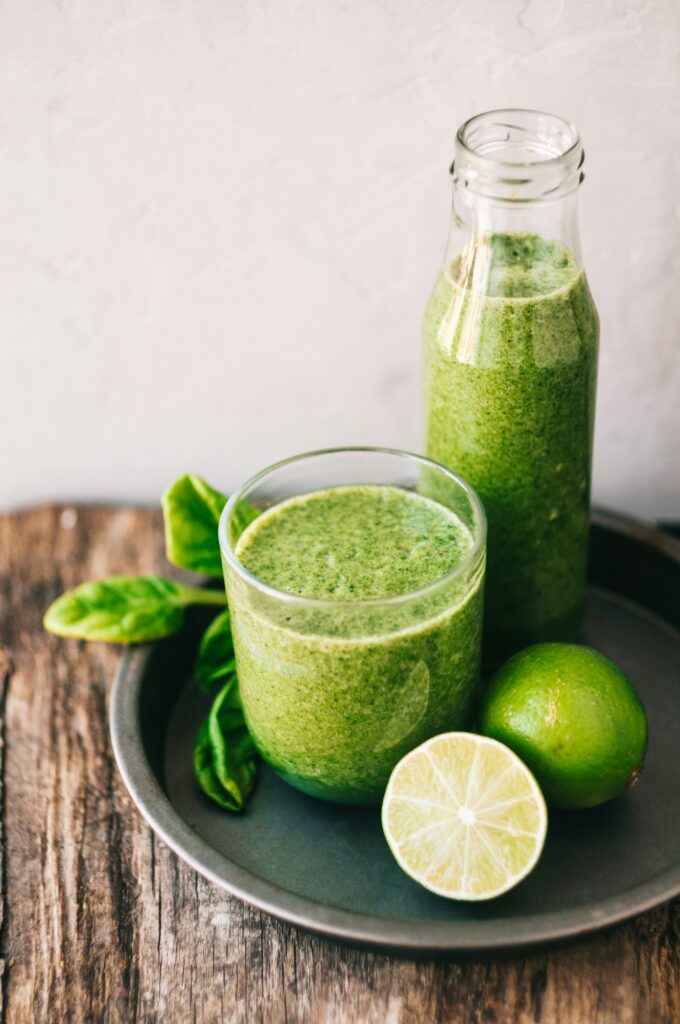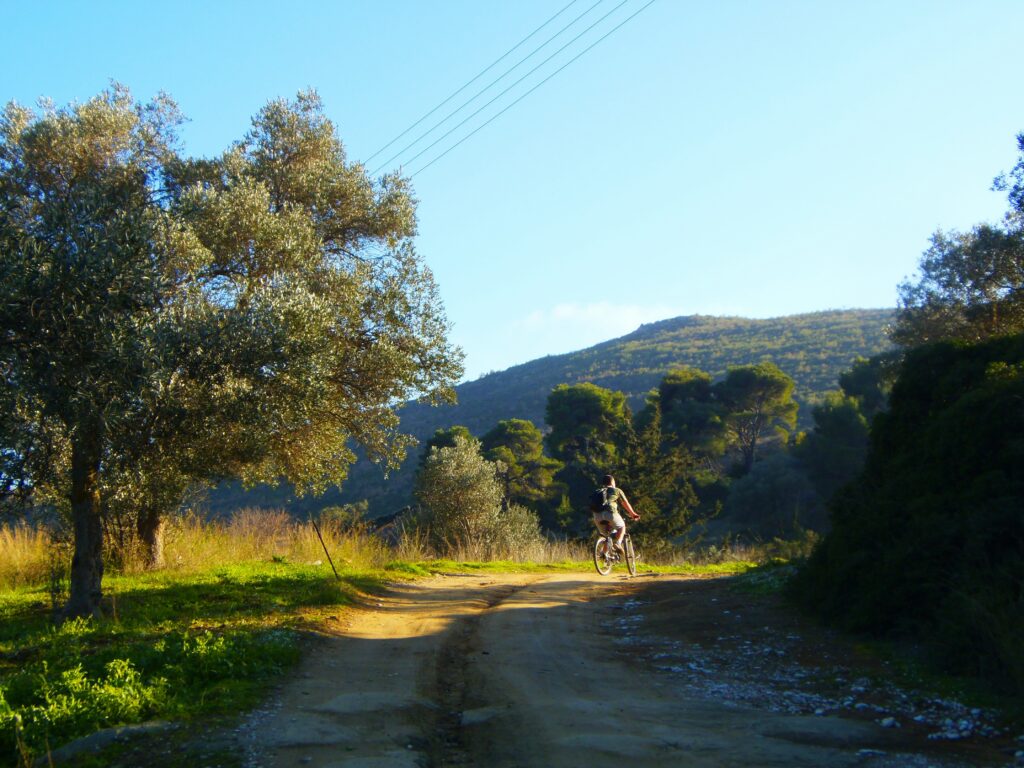The concept of purification through fasting and cleansing is hardly new to Greece. Ancient Greeks practiced therapeutic fasting as part of healing rituals at Asclepian temples, believing that physical purification prepared the body to receive healing. The islands themselves—with their dry air, mineral-rich sea water, and diet based on olive oil, wild greens, and herbs—have long been recognized as naturally cleansing environments. Modern detox yoga retreats in Greece build on these ancient foundations, combining traditional wisdom about purification with contemporary understanding of nutrition, toxicology, and the body’s natural detoxification systems.

What distinguishes detox retreats in Greece from similar programs elsewhere is the environment itself acting as partner in the cleansing process. The Mediterranean climate—hot, dry, with intense sun—naturally promotes sweating and elimination. Sea swimming provides mineral immersion and lymphatic stimulation. The local diet, when stripped to essentials, is inherently cleansing—olive oil, vegetables, legumes, herbs, small portions of fish—the foods that Blue Zone research has identified as promoting longevity and health. You’re not detoxing despite the location but working with it, allowing the elements to support processes your body knows how to perform when given proper conditions.
Greek detox yoga retreats range from gentle cleansing programs that simply eliminate processed foods and stimulants while emphasizing whole plant foods, to more intensive protocols incorporating juice fasting, colonics, and various spa treatments designed to accelerate toxin elimination. Understanding the different approaches and their appropriateness for your body, health status, and goals is crucial for choosing a program that supports rather than stresses your system.

Understanding Detoxification: Science and Tradition
The body has sophisticated built-in detoxification systems—primarily the liver, kidneys, digestive tract, lungs, lymphatic system, and skin. These organs constantly work to process and eliminate metabolic waste products, environmental toxins, and substances the body doesn’t need. The purpose of detox retreats isn’t to do something the body can’t do naturally, but to reduce incoming toxic load while supporting the organs that manage elimination, allowing them to work more efficiently and catch up on backlog.
Modern life presents unprecedented toxic exposure—processed foods with additives our bodies didn’t evolve to handle, environmental pollutants in air and water, electromagnetic radiation, stress hormones from chronic anxiety, medications and their metabolites. Our detoxification systems, designed for ancestral environments, can become overwhelmed by this constant barrage. Detox retreats provide a break—a period of minimal toxic input, maximal support for elimination, and conditions that allow the body to reset.

Greek detox approaches often blend modern protocols with traditional practices. Fasting has roots in Orthodox Christian tradition, where periodic abstinence from animal products and oils is prescribed for spiritual purification. Herbal medicine—using plants like chamomile, sage, oregano, and mountain tea with known digestive and liver-supporting properties—draws on folk wisdom passed down through generations. Sea bathing and thermal springs (Greece has numerous natural hot springs) have been used therapeutically since antiquity. Contemporary detox retreats honor these traditions while incorporating modern understanding of nutrition, supplementation, and bodywork.
Types of Detox Programs in Greece
Whole Foods Cleansing: The gentlest approach eliminates processed foods, refined sugars, caffeine, alcohol, dairy, gluten, and sometimes animal products, while emphasizing organic vegetables, fruits, legumes, whole grains, nuts, seeds, and high-quality olive oil. Meals are plant-based or include small portions of fresh fish. This isn’t deprivation—it’s eating extraordinarily well with foods that don’t burden digestion or tax detoxification organs.
These programs work particularly well in Greece because the Mediterranean diet is already naturally cleansing. Greek cuisine emphasizes vegetables—horta (wild greens), eggplant, zucchini, tomatoes, peppers—legumes like lentils, chickpeas, and fava beans, olive oil in generous amounts, herbs, and modest portions of protein. Remove the cheese, meat, and wine from a traditional Greek meal and you essentially have a detox diet that’s delicious and satisfying rather than restrictive.
Whole foods programs typically last 7-14 days and are suitable for most healthy adults. They’re particularly appropriate for first-time detox participants, anyone with blood sugar sensitivity who shouldn’t fast, and those wanting cleansing benefits without the intensity of more restrictive protocols. The combination of clean eating, daily yoga, swimming, and sauna or steam treatments creates gentle but effective detoxification.
Juice Fasting and Raw Food Programs: More intensive protocols replace solid meals with fresh vegetable and fruit juices, smoothies, and sometimes raw soups. The digestive system gets complete rest from breaking down fiber, allowing energy to redirect toward elimination and healing. Juice fasting can produce dramatic results—rapid weight loss, mental clarity, increased energy—but also requires careful supervision and isn’t appropriate for everyone.
Greek juice detox programs benefit from exceptional produce—organic vegetables and fruits grown in mineral-rich soil, intense sun creating concentrated flavors and nutrients, and traditional varieties that haven’t been bred for uniformity at the expense of nutrition. A juice made from Cretan tomatoes, Greek cucumbers, local celery, wild greens, and lemon has fundamentally different nutrient density than the same recipe using conventional supermarket produce.
These programs typically run 3-7 days and require medical screening beforehand. They’re not suitable for people with diabetes, eating disorders, anyone underweight, pregnant or nursing women, or those with certain medical conditions. The intensity can produce “healing crises”—headaches, fatigue, skin eruptions, emotional releases—as toxins mobilize. Good programs prepare participants for this, provide support through difficult periods, and know when intervention is needed.
Combination Programs: Many Greek detox retreats use graduated approaches—perhaps starting with 2-3 days of light whole foods to prepare the system, moving into 3-4 days of juice fasting, then transitioning back with easily digestible solid foods. This approach minimizes shock to the system while still providing intensive cleansing periods. The yoga practice adapts throughout—more vigorous during whole foods phases, gentler and more restorative during fasting periods when energy is lower.
Supporting Practices: Beyond Diet
Effective detox retreats in Greece incorporate multiple modalities that work synergistically with dietary protocols.
Yoga Practice: Specific asanas support detoxification by stimulating organs, improving circulation, and promoting lymphatic drainage. Twists massage abdominal organs including the liver and intestines. Inversions encourage lymph movement and venous return. Forward bends calm the nervous system and aid digestion. Gentle backbends stimulate kidneys. Restorative poses activate parasympathetic response necessary for healing and elimination. The practice during detox is generally gentler than normal—the body has less energy available, and forcing intensity would be counterproductive. The focus shifts from achievement to support, from doing to being.
Pranayama and Meditation: Breath practices enhance lung function and oxygenation while calming the nervous system. Kapalabhati (skull-shining breath) is specifically considered cleansing in yogic tradition. Alternate nostril breathing balances the nervous system. Extended exhales activate rest-and-digest response. Meditation addresses the mental and emotional aspects of detox—working with cravings, sitting with discomfort, processing emotions that surface when numbing habits are removed.
Hydrotherapy: Swimming in salt water provides natural mineral therapy and lymphatic stimulation. The buoyancy reduces joint stress while the resistance strengthens muscles. Cold water immersion (some retreats offer this) stimulates circulation and immune function. Contrast therapy—alternating hot sauna or steam with cool showers or sea swimming—powerfully promotes circulation and elimination through the skin. Greece’s climate makes water-based therapies accessible year-round, though most pleasant April through October.
Bodywork and Spa Treatments: Massage, particularly lymphatic drainage and deep tissue work, mobilizes stored toxins and promotes their elimination. Dry brushing before showering stimulates lymph flow. Body wraps using local materials—olive oil, honey, volcanic mud, seaweed—draw toxins through skin while providing minerals. Colonics and enemas (offered at some retreats, controversial among practitioners) directly remove waste from the colon, though their necessity and safety are debated within the wellness community.
Rest and Sleep: Detoxification is intensive metabolic work. The liver performs most detox functions during sleep, making adequate rest essential. Greek retreat environments—quiet, without light pollution, with only natural sounds—support deep sleep. The lack of stimulation (no tv, limited internet, often no electricity in evenings) allows natural circadian rhythms to re-establish. Many participants report sleeping more deeply than they have in years.
The Detox Experience: What to Expect
Detox retreats follow predictable patterns, though individual experiences vary based on toxic load, health status, and protocol intensity.
Days 1-2: Initial enthusiasm often carries you through early days. You might feel energized by commitment, excited by new environment, optimistic about outcomes. If you’ve eliminated caffeine, headaches typically begin by day one or two. Hunger pangs are common if fasting. Sleep might be disrupted as the body begins mobilizing stored toxins. This is the honeymoon phase—not yet difficult but not yet experiencing benefits.
Days 3-4: This is often the hardest period, sometimes called the “healing crisis.” As toxins mobilize from tissues into bloodstream for elimination, you might experience fatigue, irritability, headaches, body aches, skin eruptions, emotional volatility, or digestive issues. Your tongue may coat white (considered a sign of toxins eliminating through oral mucosa). You might feel worse than when you arrived, questioning whether this was a good idea. This is normal and actually indicates the process is working. Good retreat staff recognize this phase and provide extra support—gentler yoga, more rest time, encouragement that this passes.
Days 5-7: The crisis typically breaks around day four or five. Energy returns, often dramatically. Mental clarity improves—the “brain fog” many people don’t realize they’ve been experiencing lifts. Sleep deepens. Skin begins looking clearer and more luminous. Mood stabilizes and often elevates—many people report feeling genuinely happy without external reason. This is when you understand why people do this, when the difficulty of earlier days feels worthwhile.
Days 8-10+: If the program continues beyond a week, you settle into a new equilibrium. Heightened energy continues, sensitivity increases (tastes are sharper, colors seem brighter, emotional attunement deepens), and a sense of physical lightness emerges. Yoga practice often deepens—poses that were challenging become accessible, breath flows more freely. Some people experience spiritual or psychological breakthroughs during this phase, though this isn’t universal or necessary for successful detox.
The Greek Advantage: Climate and Environment
Greece’s environment provides specific advantages for detoxification that indoor spa settings can’t replicate.
Sunshine and Vitamin D: Adequate vitamin D is essential for immune function, bone health, mood regulation, and numerous metabolic processes. Many people in modern life are vitamin D deficient despite supplementation. Direct sun exposure (with appropriate caution regarding burning) allows natural synthesis. Greek sun, particularly strong from April through October, provides abundant opportunity for healthy exposure. Morning and late afternoon sun on bare skin for 20-30 minutes daily can significantly boost vitamin D levels over the course of a retreat.
Clean Air and Negative Ions: Coastal and island locations offer air quality dramatically better than urban environments. Sea air contains negative ions—molecules that research suggests reduce depression, boost mood, and improve respiratory function. The absence of industrial pollution, vehicle exhaust, and indoor air contaminants gives the respiratory system a break while allowing deep breathing to support detoxification through the lungs.
Grounding and Earthing: Walking barefoot on sand or earth (common at Greek retreats with beach access and garden practice spaces) allows direct electrical contact with the earth’s surface. Emerging research suggests this “grounding” reduces inflammation, improves sleep, and supports various body systems. Whether through measurable electromagnetic effects or simply the pleasure and sensory richness of bare feet on varied natural surfaces, grounding enhances the retreat experience.
Seasonal Produce: Greek fruits and vegetables, particularly those grown organically in local soil, contain higher nutrient concentrations than produce shipped globally. Tomatoes ripened on the vine under intense sun, greens picked hours before eating, olive oil pressed from local fruit—these provide vitamins, minerals, antioxidants, and phytonutrients in forms and combinations that supplements can’t match. The detox diet becomes not just what you’re eliminating but what you’re providing—exceptional nutrition that supports every system.
Psychological and Emotional Detox
Physical detoxification often triggers psychological and emotional releases. Substances we use habitually—caffeine, alcohol, sugar, processed foods—often serve emotional regulation functions we’re not fully conscious of. Remove these coping mechanisms, and the feelings they’ve been managing surface.
This can be uncomfortable but ultimately valuable. You might find yourself crying for no apparent reason, feeling angry or anxious without clear cause, remembering past events with unexpected emotional intensity. Greek retreat environments—beautiful, supportive, removed from daily pressures—provide safe containers for processing whatever emerges. Daily yoga and meditation offer tools for sitting with discomfort rather than immediately reaching for distractions.
Many participants report that emotional breakthroughs are the retreat’s most valuable outcomes—finally grieving losses they’d been avoiding, recognizing patterns that no longer serve them, making decisions they’d been postponing. The clarity that comes from physical cleansing extends to psychological and emotional realms, allowing you to see your life from fresh perspective.
Reintegration: Life After Detox
The most critical phase of detox programs is often the least emphasized—reintegration into regular life. The benefits you’ve gained can disappear rapidly if you immediately return to old patterns. Good Greek detox retreats provide detailed guidance for the transition period.
Post-detox recommendations typically include: gradually reintroducing foods over several days rather than immediately eating everything you’ve missed, continuing to avoid processed foods and stimulants for at least a week, maintaining daily yoga or movement practice, prioritizing sleep and stress management, and potentially scheduling regular shorter detox periods (one day per week of simple eating, seasonal three-day cleanses) to maintain benefits.
The challenge is that everyday environments don’t support detoxified states the way retreat environments do. You return to stressful jobs, processed food everywhere, social situations revolving around alcohol, and habits formed over decades. Expecting perfection is unrealistic and counterproductive. Instead, the goal is incremental improvement—making choices more often that support health, noticing more quickly when you’ve drifted from beneficial patterns, and trusting the embodied knowledge gained during retreat about what truly makes you feel good.
Who Benefits Most from Detox Retreats
Detox retreats are most beneficial for generally healthy people seeking to reset habits, increase energy, clarify thinking, and break dependence on substances like caffeine, alcohol, or sugar. They work well for those recovering from periods of overindulgence or stress, wanting to kickstart weight loss or fitness programs, or seeking to understand their relationship with food and consumption.
They’re less appropriate for people with active eating disorders (fasting and restriction can trigger problematic patterns), those with certain medical conditions (diabetes, heart disease, kidney problems), anyone significantly underweight, pregnant or nursing women, and those taking medications that require food intake or careful timing. Medical screening before intensive detox is essential.
Psychological readiness matters as much as physical health. Detox requires tolerating discomfort, facing what we usually avoid or numb, and surrendering control. Those who need everything to go smoothly, who can’t handle feeling worse before feeling better, or who resist emotional processing may find the experience overwhelming rather than beneficial.
Choosing a Detox Retreat in Greece
When evaluating detox programs, consider: What’s the theoretical foundation? Programs based on sound nutritional science and traditional wisdom are preferable to those making exaggerated claims or using pseudoscience. Who supervises the program? Ideally someone with medical, nutritional, or naturopathic training, not just yoga teachers without health education. What’s included? Comprehensive programs address multiple systems (dietary, movement, bodywork, psychological) rather than focusing narrowly on one approach.
How intensive is the protocol, and is it appropriate for your health status and experience? First-time detoxers should choose gentler programs; those with detox experience might benefit from more intensive approaches. What preparation and reintegration support is provided? Programs that just drop you into fasting without preparation or guidance for afterward are less likely to produce lasting benefits. And finally, does the setting support the work? Greek environments with clean air, beautiful nature, and quality food provide optimal conditions—sterile medical-style facilities might be less conducive to the holistic healing detox invites.
The Deeper Purpose
Ultimately, detox retreats in Greece offer more than physical cleansing. They provide opportunity to reset your relationship with consumption, to practice discernment about what you actually need versus what habit, advertising, or social pressure suggest you want. They create space to experience your body’s innate wisdom—its capacity for healing, its communication through sensation and intuition, its remarkable resilience when given proper support.
The Greek setting reminds you that health isn’t achieved through deprivation or punishment but through alignment with natural rhythms, quality over quantity, simplicity over complexity. The Mediterranean lifestyle that Blue Zone research identifies as promoting longevity isn’t about strict diets or intensive protocols—it’s about daily practices of moderation, movement, connection, and pleasure in simple things done well. Detox retreats, paradoxically, teach this not through permanent restriction but by temporarily removing excess, allowing you to rediscover sufficiency and the unexpected richness it contains.
Read more about Yoga and Wellbeing in Greece
Yoga and Food Retreats in Greece: The Healing Power of the Mediterranean Diet
Food in Greece is never just fuel—it’s culture, connection, celebration, and at its best, a…
Yoga and Detox Retreats in Greece: Reset Under the Sun
The concept of purification through fasting and cleansing is hardly new to Greece. Ancient Greeks…
Yoga and Sailing Retreats in Greece: Freedom on the Aegean Sea
There’s something profoundly liberating about waking up in a different bay each morning, about having…
The Light of Greece: A Meditation on Simplicity
There’s something about the light in Greece that’s impossible to photograph, difficult to describe, but…
Eco Yoga Retreats in Greece: Between Olive Trees and Blue Horizons
There’s an inherent alignment between yoga philosophy and ecological consciousness—both invite us to recognize our…
Yoga Retreats Near Athens: Balance Beyond the City
Athens doesn’t immediately conjure images of wellness retreats. The Greek capital is known for its…





